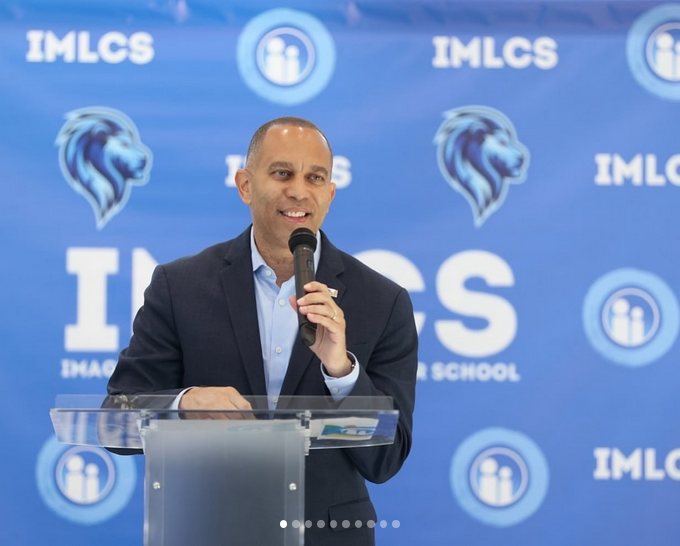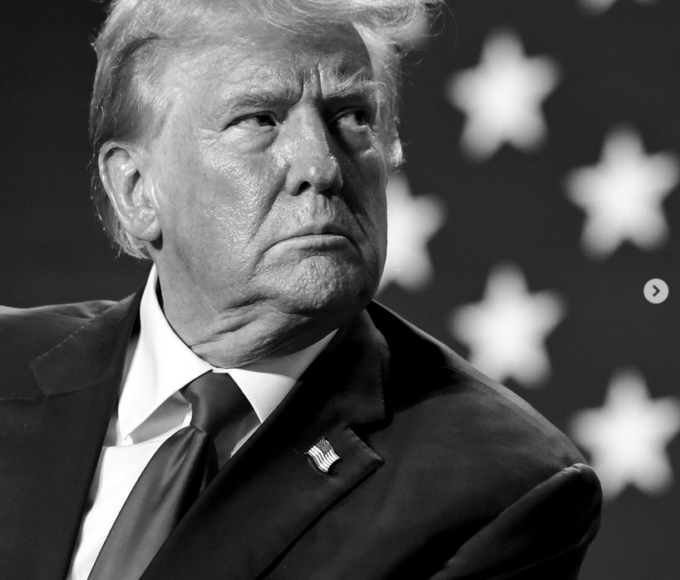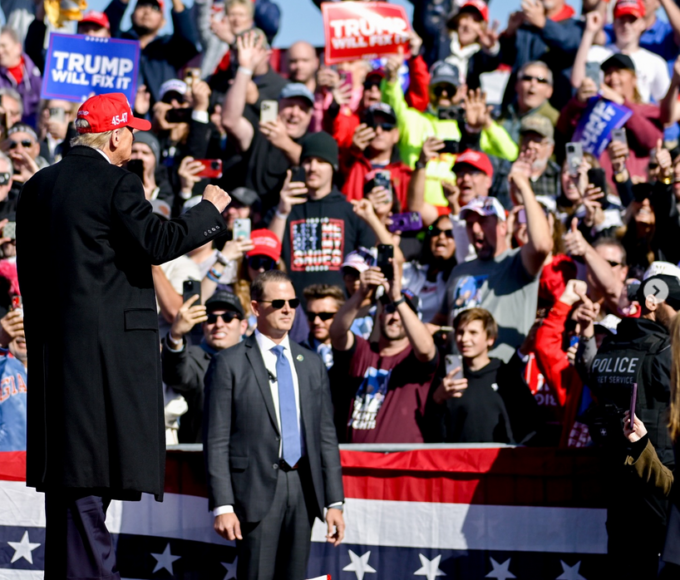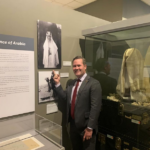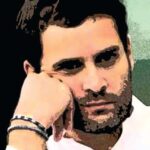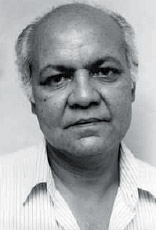 Janardan Thakur started his career in journalism with the nationalist Patna daily, The Searchlight, in December 1959. In his long and distinguished career spanning the reign of each Prime Minister since Independence, Thakur reported from the thick of some of the most momentous contemporary events at home and afar—JP’s ‘total revolution’, the Emergency, the bristling emergence of Sanjay Gandhi, the fall and rise of Indira Gandhi and then the rise and fall of Rajiv, the Kremlin of Leonid Ilyich Brezhnev, the Soviet invasion of Afghanistan and Khomeini’s revolution in Iran, Ronald Reagan’s re-election in an America swinging Right, VP Singh’s ascent as a messiah with tainted magic and the rasping run to power of the BJP. Thakur’s journalism, from the very start, broke traditional moulds of reportage and writing, going beyond the story that meets the eye and into processes and personalities that made them happen. His stories on the Bihar famine of the mid-1960s and the manmade floods that ravaged the State were a sensation. He was perhaps alone in predicting defeat for Indira Gandhi in 1977 and again singular in exposing the corroded innards of the Janata Government that followed. A Jefferson Fellow at the East-West Center, Hawaii, in 1971, Thakur moved to New Delhi as a Special Correspondent for the Ananda Bazar Patrika group of publications in 1976. He went freelance in 1980 and turned syndicated columnist. In 1989-91, he was Editor of the fortnightly Onlooker, and The Free Press Journal. Thakur authored All The Prime Minister’s Men, probably the most successful of the crop of books that followed the Emergency. His All the Janata Men, the story of the men who destroyed the first non-Congress government in New Delhi, was equally successful.
Janardan Thakur started his career in journalism with the nationalist Patna daily, The Searchlight, in December 1959. In his long and distinguished career spanning the reign of each Prime Minister since Independence, Thakur reported from the thick of some of the most momentous contemporary events at home and afar—JP’s ‘total revolution’, the Emergency, the bristling emergence of Sanjay Gandhi, the fall and rise of Indira Gandhi and then the rise and fall of Rajiv, the Kremlin of Leonid Ilyich Brezhnev, the Soviet invasion of Afghanistan and Khomeini’s revolution in Iran, Ronald Reagan’s re-election in an America swinging Right, VP Singh’s ascent as a messiah with tainted magic and the rasping run to power of the BJP. Thakur’s journalism, from the very start, broke traditional moulds of reportage and writing, going beyond the story that meets the eye and into processes and personalities that made them happen. His stories on the Bihar famine of the mid-1960s and the manmade floods that ravaged the State were a sensation. He was perhaps alone in predicting defeat for Indira Gandhi in 1977 and again singular in exposing the corroded innards of the Janata Government that followed. A Jefferson Fellow at the East-West Center, Hawaii, in 1971, Thakur moved to New Delhi as a Special Correspondent for the Ananda Bazar Patrika group of publications in 1976. He went freelance in 1980 and turned syndicated columnist. In 1989-91, he was Editor of the fortnightly Onlooker, and The Free Press Journal. Thakur authored All The Prime Minister’s Men, probably the most successful of the crop of books that followed the Emergency. His All the Janata Men, the story of the men who destroyed the first non-Congress government in New Delhi, was equally successful.He passed away on July 12, 1999.
IT is not for journalists to make predictions. Even so, I had made one, and instead of hedging it with ifs and buts as the clever ones do, I had stuck my neck out. “I have just returned from the BJP session in Bombay,” I wrote in a syndicated column, “with one certainty: Atal Behari Vajpayee will, sooner or later, become the country’s Prime Minister. I am not saying he may, I am saying he will. Mine is not a prediction based on the stars, for I am no astrologer. It’s a prediction based on a close hard look at the man and his party. Vajpayee leads a party of the future. Both have blossomed.”
That was in December 1980, still the first year of Indira Gandhi’s second stint in power, and the march of events were to make the prediction look so utterly foolish, especially at the end of 1984 when both Vajpayee and the Bharatiya Janata Party were suddenly down in the dumps.
So much else was yet to happen on the political stage: the twists and turns, the ups and downs, the violent twitches of the polity. By the time the BJP got back into reckoning, it looked an altogether different entity and Atal Behari Vajpayee himself was virtually in the dungeon, a sad old man walking his aging Apso…
But perish the thought. Here he was now, suddenly resplendent, uncapping his Mont Blanc, putting his signature on history. His finest hour. There were those who thought Atal Behari Vajpayee had only lent himself to humiliation that was round the comer, but they were obviously missing both the beauty and the import of the occasion. Some of the best things in life are shortlived. Didn’t the Bard say a lily of a day is fairer far than May? What is the life expectancy of a butterfly? Two weeks!
Vajpayee lasted for a day less than two weeks, but before he fell he left a deep niche in the hearts and minds of the people, something that could never be assured if he had lasted longer. “Like Milton’s Lucifer,” wrote Jug Suraiya, “Mr Atal Behari Vajpayee has been magnificent in his fall…the man who is being hailed as the once and future Prime Minister seems to have wooed and won the hearts of the nation, thereby perhaps irreversibly altering the future course of the on-going epic of Indian democracy.”
Perhaps at that moment, this was the script that suited the BJP most: a Vajpayee government ending abruptly, leaving the people with whetted appetite. For the brief interregnum, the party could never have found a more charming impresario than Atal Behari. Dream merchants are at their best in fleeting appearances, more so if they are to be followed by a bunch of bizarre characters, as was soon to happen. Perhaps it could have suited the BJP better if the President had given in to the pressures of the Congress and the other parties and denied it the chance of forming a government. The party would then have become a martyr in the eyes of the people or at least the nonpartisan electorate which really counts in the final analysis. The BJP would have gone to the streets in protest, and would have won public support if only because of the unseemly spectacle of 20 so-called parties and dozens of MPs scrambling for a piece of the power cake.
There was little that Atal Behari Vajpayee could have done with the President’s offer except to accept it. By that morning, the party leaders were said to have veered round to the view that it would be better to let the other side play out its burlesque. Unlike the other parties, the BJP was at a truly historic juncture. It was finally at the threshold of power, but unless it was careful it could damage itself irrevocably. If it did just what other power-hungry parties did — indulge in wanton horse-trading — it would have dropped to the common level, never to rise again. And in any case, 70 short of a majority was too big a gap to fill.
For the BJP, the obvious thing to do was to put up the best possible face while the going was good, and with Atal Behari Vajpayee in the lead that came almost naturally. He had just to be himself. Some of what Prime Minister Vajpayee told the nation in the first few days may have sounded like utter balderdash to the Hindu zealots, but there was no knowing how many new supporters the party must have won by its leader’s sweet reasonableness.
Projecting the right image was all that mattered at that point. The party had finally put its stamp on the Delhi throne and that in itself was an important milestone. There had been people round the country who had believed that the BJP could never come to power at the Centre. Perhaps the party itself did not believe it. In a way, Vajpayee was himself surprised: to the extent that he said if the party had known it would do so well, it would have made a better selection of candidates in some of the states. There were those who believe that the mere fact that Vajpayee had been projected as the party’s choice for the Prime Minister’s post showed that the leadership was convinced that it was not going to make it this time — at least not on its own. There was much sense in that. Vajpayee was not quite the man to implement the BJP’s real agenda, which could happen only if the party had a majority by itself.
That was the most important thing for the BJP: to win power at the Centre on its own. Then alone could the party put its real seal on the country’s history. In a coalition where it was forced to make compromises on most of its major national objectives for the sake of survival, the BJP could only bide its time and use the occasion to create a more favourable impression on the electorate. Everyone knew that the moment Vajpayee went off the stage, it would be choc-a-block with a chaotic bunch of characters who could never agree to agree on anything. They were united on only one thing: to get rid of the BJP.
For the rest, there was just bedlam. Even Ramakrishna Hegde, one of the architects of the Janata Dal’s victory in Karnataka, had questioned the credibility of a government formed by a so-called front of 17 parties which had been fighting one another until the other day. If only the bunch of them had listened to him in good time, the scene would perhaps have been very different.
THE BJP knew its final round still lay in the future, but it was hard for it to resist the temptation of forming a government once, to get to the summit, as it were, if only for some days. Perhaps it was important for the party’s morale. Perhaps even more important for Vajpayee himself.
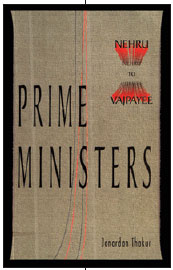
I feel my life has been wasted,” Vajpayee said in December 1983. He felt he had contributed nothing concrete to society. He had looked a lonely, disenchanted man. He had no desire to be the Prime Minister, not because he had become an escapist but because politics had become too murky. Politicians as a class had failed, he thought. Indira Gandhi was then the Prime Minister, once again on the decline, trying hard to prop up Rajiv Gandhi as her successor. “I am sure even Mrs Gandhi in her moments of solitude must be realising that she has failed,” Vajpayee had said.
He was in a state of depression, out of sync with his party’s mindset. There was nothing of the euphoria of 1980-81, when Behram Contractor had written with his characteristic chutzpah: “This week, I met the future Prime Minister of India, Atal Behari Vajpayee. Not that Vajpayee makes any such claims. He says: ‘That is all nonsense. I don’t believe in it. I can’t become Prime Minister, because I don’t belong to the Nehru family.”
Vajpayee was obviously being coy at that time. Several pundits of the press and pandits of the astral world had predicted that he would be the king. He was heading a new party with lots of promise in it, and he had certainly looked like having the prime ministerial timber, notwithstanding all the efforts of the likes of Subramanian Swamy to rubbish him. Some had thought Vajpayee was a lotus that had blossomed in the muck. That bit about his not belonging to the Nehru family was no more than a good-humoured gibe: the family’s monopoly had been broken in March 1977. That was a watershed in Indian politics, and if Indira Gandhi had swept back to power it was only because the overweening ambitions of the Janata gerontocrats had got the better of them.
One sure indication was the array of prime ministerial prospects bandied around in the 1980s. Vajpayee of course seemed to have quite a fan club in the press, with even the usually cynical commentator, Sundar Rajan, picking him as his ‘candidate for Prime Minister’: “…he (Vajpayee) made a profound impression on my mind as a sensitive, warm, gentle, balanced and thoughtful person — qualities which should help to make a good Prime Minister.”
OVER the previous decade, no other all-India party had made such rapid gains as the BJP. From one-fourteenth share of the national vote in 1984, the BJP had climbed to one-ninth share in 1989 to a one-fourth share in 1996.
The BJP had won just two seats in 1984. In 1989, it won 87. In 1990, it won assembly elections in virtually all of the north: Rajasthan, Uttar Pradesh, Madhya Pradesh and Himachal. In 1991, it was the second largest party in Parliament after the Congress with 119 seats.
The problem for Vajpayee had arisen after the stunning defeat in 1984. The RSS had already expressed its disappointment with Vajpayee’s stewardship of the party and had turned to the No.2 man, Lal Krishna Advani.
The BJP government lasted just 13 days, the shortest in Indian history. In his final oration in Parliament, Vajpayee spoke almost as though he were delivering a campaign speech. He quoted a couplet from Subramania Bharati, prefacing it with the announcement that the Tamil language did not pose any problems of understanding for him… It was a virtuoso performance, reflective and philosophical, and as he led his flock out of Parliament, the mood was upbeat. He had projected a face of moderation and responsibility before the nation. But this also made him the odd man out in his own party.
A few days after Vajpayee’s government fell, the famour Urdu litterateur, Ali Sardar Jafri, wrote a letter to the former Prime Minister, telling him he had never in his life sat before the TV set as on May 27 and 28. He thought it had been a tremendous waste of people’s time because they had expected a debate on the fate of democracy in India and what they got was like what Ghalib had said: Hota hai shab-o-roz tamasha mere aagey— every day and every night a circus happens before my eyes. Another famous writer, Mulk Raj Anand, wrote to Vajpayee after his fall:
“Undoubtedly you stand out in our country today as the tallest among contemporary leaders. And there seems to be genuine respect for you from many people who are far removed from the BJP and its political and social manifesto… If you had been an independent, you would have been the unanimous choice of all parties as Prime Minister of our country… ”
These were not sentiments which could have gone down well with the BJP and the Sangh parivar. Rarely was Vajpayee fully in tune with the general ethos of the party’s hard core. While the party was opposing the holding of elections in Kashmir, Vajpayee was privately urging Farooq Abdullah to contest. As the party president during 1980-1986, he had tried to turn the BJP into a moderate umbrella party, which the conservative sections did not like at all. They were pushing LK Advani to take over and ‘save the party’.
Until not very long ago, Vajpayee’s moderate line had been absolute anathema to the Sangh Parivar. In December 1992, Vajpayee had walked out of a meeting of the BJP national executive in sheer disgust, and there was not a ripple in the party. In fact, at one point some of the party hardliners had thought of organising an agitation against Vajpayee, and some had even wanted him thrown out of the party if he refused to take back his expressions of regret over the demolition of the Babri Masjid. They were angry that Vajpayee had not even cared to attend the kar seva.
But it had then dawned on the party leadership that the aggressive agitational approach was harming the BJP’s image as a responsible, disciplined party, and was creating suspicion in the minds of the elite and the middle class in the country. Worse still, it had suffered in the eyes of the world. The BJP had all along been highly perceptive to Western perceptions of Indian politics. Interaction between the party and the Western diplomats had grown in recent days, but the demolition of the Babri Masjid and the countrywide riots and disturbances that followed had shaken their confidence in the party. The ‘responsible’ leaders of the party, they thought, had lost their initiative to the ‘firebreathing hardliners’.

THE forces of militant Hindutva had tasted blood and it was not easy to put them down. They had taken the driver’s seat in the BJP. Came the elections in Maharashtra and Gujarat and the tide of Hindutva was on the rise again. The Vaghela revolt in Gujarat, which later brought down the BJP government was essentially against the vice-like grip that the RSS had come to have on the administration. It brought into sharp focus the divide in the party, its vulnerability and its limitations. If it was not clear to the party leadership before the crisis in Gujarat, it became evident after it that there was no way they could win power at the Centre on the own. A coalition was the best it could hope for, and for this they needed to project a leader with a wider acceptability. Vajpayee was the obvious man.
What set Vajpayee apart from the general run of politicians was his charm, which had become such a rare commodity in politics. He could charm even the birds out of the trees, simply by being what he is — a charming human being. Even the Communists who detest the BJP, and more so the RSS, change their tone when they speak of Vajpayee. “Ah, he is different. There is nothing of the Hindu fanatic about him. The RSS does not trust him.” That was his real problem.
Vajpayee has often been called as the ‘right man in the wrong party’ (or the ‘wrong man in the Right’). After the BJP was formed, there was the constant tussle between those who wanted to the party to join hands with other opposition parties and those who wanted to go it alone. Some who were clamouring for outright merger claimed they had the support of the party president, Vajpayee. Whatever his line and whether he felt thwarted or not, he was an unhappy president, torn in opposite directions, until a point was reached when he began to doubt whether his vehicle itself was the right one.
Sometime in the late 1980s, when he had been sidelined by the hardliners and had become something of a recluse, I had asked Vajpayee why he could not leave the BJP and forge a new path for himself. He knew he was totally out of sync with the party, which was using him only for his public appeal and his catch-all personality. Even his foster daughter, Gunu, a spirited young lady who was almost like his alter-ego and knew too well his despairs and frustrations, had echoed my question, “Yes, Baapji, why don’t you leave it and go on your own?” After one of his long pauses so characteristic of him, as though the poet in him were plumbing some deep nooks of the mind, Vajpayee had said with a smile, Jaoon to jaoon kahan? It had seemed to me that he lacked the tenacity or the gambler instinct of, say, Indira Gandhi, who could build a new vehicle in the middle of a lost battle and push on to victory. With even a little of that grit and determination, with a little of that dynamism and willingness to take a risk, Vajpayee would have been a sure winner. He had to move from being just a crowd-catcher to a vote-catcher, and for that he needed to create an organisation which was in tune with himself. It was a tall order, but Vajpayee could hardly achieve his full potential and give his best through easy short-cuts.

Nobody knew this better than Vajpayee. Talking to him on the state of Indian politics at that time, I had asked him about the streak of escapism in him. “No, not escapism,” he had said, and then added, “yes, escapism from this murky politics.” And what was it that had made Indian politics so murky? After a long thoughtful pause, he had said : “Look at the condition of the country. I am sure even Mrs Gandhi in her moments of solitude must be realising that she has failed… The politician as a class has failed. Why? Because they gave up the idea which inspired our freedom fighters — that politics was not a profession but a mission. Look at the situation today. Everybody is in a hurry to grab whatever position he can. Nobody has the patience to wait.”
Maybe it was too late in the day for Vajpayee to change his vehicle. He had been a part of the Sangh family for decades, an ‘old soldier’ of the RSS who had turned up for the Sakhas and ceremonial rallies of the RSS in the obligatory khakhi shorts. What was perhaps difficult for the RSS to contain was Vajpayee’s larger view of life and polity. “If I hadn’t come to the RSS,” Vajpayee had once told the ex-Jan Sangh president, Balraj Madhok, “I would have been a Communist.” Vajpayee had joined the RSS in 1941, when he was only 15 years old, but he had also become a member of the Indian National Congress (1942-43), and was associated with the Students’ Federation in 1945.
Vajpayee had become a great admirer of Jawaharlal Nehru and had supported the basic tenets of his foreign policy. In one of his early speeches in the Lok Sabha, in 1957, he said that even if some other party had come to power instead of the Congress, and if there had been another Prime Minister in place of Nehru, the country would still have followed the policy of non-alignment. The young Jan Sangh MP had made a great impact, especially when he said that “one needed eloquence to speak but both eloquence and restraint to remain silent.” Nehru who had been listening intently, got up to intervene, a very unusual thing for him to do, and said he himself did not like to get involved in every world issue, but “what can I do? They don’t let me alone!”
AT a reception in the Indian Embassy in Washington, in the early 1960s, Nehru had introduced Vajpayee to Dag Hammarskjoeld, then the UN General Secretary, as “India’s blooming young parliamentarian.” When Nehru died, Vajpayee’s was one of the most eloquent tributes: “The sun has set!” He described Nehru as a thoroughly honest man and an idealist “who was never afraid to negotiate, and never negotiated with fear.” He was so choked with emotion that he burst into impulsive tears. Many years later, as the incumbent foreign minister in the Janata government, he said in an interview: “He (Nehru) was a great leader. He may have committed mistakes. Who does not? But he gave dignity and sophistication to India’s political life and culture, and enriched them…”
Vajpayee himself is something of a Nehru, albeit of a homespun variety. Which has been the main ground for the Sangh Parivar’s allergy toward Vajpayee. ‘We don’t believe in personality cult’ — this was the constant refrain of the Jan Sangh which later metamorphosed into the Bharatiya Janata Party. It stemmed from a deep resentment against the Nehru cult which was strong in those days. The Jan Sangh’s dislike for Jawaharlal’s political philosophy or world view was one thing, its dislike for his personality quite another. They perceived him as an Anglophile who had hijacked the freedom movement from the truly Indian patriots. Nehru’s aura, or call it charisma, was difficult to fight.
One of the real reasons for starting the Jan Sangh was to oppose the Nehru line, for the Gurus of the RSS realised that without undermining it nothing new could take roots. Not surprisingly they went all out to debunk the personality cult that had grown around Nehru and was sought to be created around Indira Gandhi. They gave it an ideological cover: it was against the tenets of the Jan Sangh to give undue importance to an individual — it was the work that mattered, not the man who did it. That was supposed to be the mindset of RSS pracharaks who worked almost anonymously, and often did great work, without ever coming into the limelight.
THAT was the tradition to which LK Advani belonged. A quiet solid pracharak working beaver-like without ever projecting himself. Vajpayee, on the other hand, was seen as a fish from quite a different kettle, so Nehruvian in his mould that many of the puritanical Sanghites just could not accept him as one of them. But much as they abhorred the liberal colourful Vajpayee whom Nehru had patted and praised for his eloquence, and who could go euphoric over the brave deeds of Indira and call her ‘Durga’, they just couldn’t do without him. He was their vote-catcher, the man who brought them recognition and applause from far and near. The two leaders, Vajpayee and Advani, were quite unlike each other: While the one could soar to poetic heights and win praise from all sides, the other was cool and calm and earthy.For a long time the two leaders were complementary; each had respect for the other.
To begin with, there was hardly any question about which of the two was the party’s public face. At the BJP’s Bombay session in December 1980, the most strident new slogan was: ‘Desh ka neta kaisa ho, Atal Behari jaisa ho!’ Many hardliners had scoffed at it even at that time. But those were not the thoughts of LK Advani, at least at that point. It was only much later, after the Rath Yatra, that Advani came to the forefront. For a time Vajpayee virtually withdrew into his own little cell, writing poetry, parliamentary memoirs, walking his Apso, watching movies on the video, and so on.
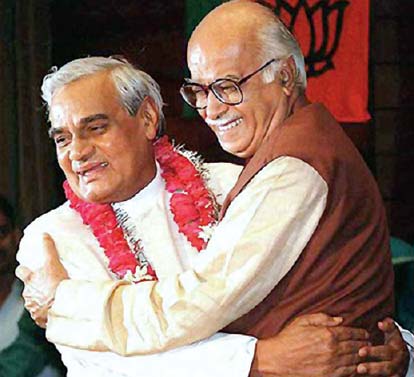
Whatever Vajpayee’s personal beliefs about the BJP or the Sangh Parivar, he has always been cautious on this score. Whenever attempts are made to highlight his ‘separateness’, he has been quick to correct the impression and assert that he is part and parcel of the Sangh Parivar. Even so, he could not contain his inner feelings after the fall of the Janata Party. In August 1979, he wrote a signed article in The Indian Express in which he first defended the role of the Jan Sangh component of the government, and then added: “The RSS, claiming to be a social and cultural organisation, should have taken greater pains to demonstrate that they did not seek a political role. Patronising a press that takes sides in the sordid politics of power, involvement in youth bodies that interact with political parties, participating in trade union rivalries such as the one which brought enormous misery to the people of Delhi by callously cutting off the water supply — these do not help an organisation to establish its apolitical credentials. It is possible that some people genuinely feel apprehensive about the RSS. A certain onus accordingly devolved on the RSS, an onus that has not been discharged effectively by the RSS. Its repudiation of the theocratic form of the state was welcome, yet the question could legitimately be asked — Why does it not open its doors to non-Hindus? Recent statements of the RSS chief, Mr Deoras indicate that non-Hindus are being encouraged to join the organisation. A natural corollary of this process would be clear renunciation by the RSS that by ‘Hindu Rashtra’ it means the Indian nation which includes non-Hindus as equal members.”
In December 1984, Vajpayee had suffered a blistering defeat from his home ground, Gwalior, at the hands of his colleague, Vijayaraje Scindia’s son, Madhavrao. In mid-1986, he was back in Parliament but it was not quite the same Vajpayee. Some had called it a back-door entry, because getting into the Rajya Sabha for a man of his standing in the Lok Sabha did not quite behove him. The Upper House was certainly enriched by his presence, but he could not have waited until the next general elections? He was not just another politician, he was the one against whom all pollsters had compared the ratings of other prime ministerial candidates. In 1982, the Indian Institute of Public Opinion carried out a poll to ascertain the popularity of some of the top political leaders of the country. Indira Gandhi was on top of the heap, but the answer to her was Atal Behari Vajpayee, with all other leaders of the opposition lagging pathetically behind, like lost stragglers. It was not just a freak poll. The survey showed that Vajpayee had maintained a ‘steady score’ right from when he was first included in the personality surveys — in 1977. “The broad picture,” said the poll, “seems to be that, of all opposition leaders Vajpayee has a standing in his own right and it will not be raised or lowered in Janata-type coalition.” In 1986, the MARG conducted a poll, and it put him as ‘the answer to Rajiv Gandhi’ who was then at the peak of popularity. The notable point was that while Rajiv Gandhi was the Prime Minister ‘marching the country into the 21st century”, Vajpayee was not even heading the BJP anymore; hardliners had elbowed him out. He was not even an MP then, having lost in Gwalior. The highs and lows of politics had not affected him. Of how many Indian leaders could one say that? Vajpayee is definitely a cut above the rest, especially after the sad departure of Indira Gandhi.
GETTING into the Rajya Sabha had certainly been a compromise for him. In his mental make-up there is a streak of strong pessimism, or rather of defeatism, which at crucial moments pulls him down and keeps him from soaring to the heights he is capable of achieving. It could be the poet in him that pushes him toward escapism and detachment. At one point, when the Janata Party government was moving towards its denouement, he was in hospital, in a state of acute mental turmoil. The poet welled up:
- Raah kaun si jaaun main
- Chaurahe par luta cheer
- Pyade se pit gaya wazir
- Chalun aakhri chaal ya
- Bazi chhod virakti rachaun main…
(Which way should I go? We are stripped at the cross-road …A mere pawn has beaten the minister. Should I make the final thrust or should I quit the game and renounce it all?)
He was often torn from within. Jaoon to jaoon kahan? It was almost a Hamletian dilemma: to be or not to be. In December 1992, when the Babri Masjid was pulled down and Vajpayee was totally out of place in that raving madness of Hindutva, he was at another crossroad, as it were, but to break away was difficult. It was too late a stage in life. He was already 66 and not in the pink of health. What was more, he perhaps lacked the kind of grit and determination, the energy and the gusto which Indira Gandhi had in such great measure. With his kind of political and personal magnetism, Vajpayee could have forged a shining new instrument to beat all others. Maybe it was an inbuilt phlegmatism and poetic pessimism which kept dragging him down.
Ever since that climactic day in December 1992, when the Babri Masjid was razed to the ground, the BJP had been salivating for power. Time and again it has fancied itself being just a heart-beat away from the Delhi throne: ‘Just one little push and we’ll be there!” After the Masjid was gone, one of the BJP pundits had exulted how LK Advani was already being “treated as the Prime Minister” by the officials of Uttar Pradesh. He made it seem as though it was a matter of days before Narasimha Rao would tumble and the crown would be on Advani’s head. But the damned thing had slipped through the fingers. Not again, the BJP leaders reassured themselves: this time we shall go for the kill. Wait for the final knock-out! In 1996, they thought they were playing the ‘finals’ and the team managers were giving the players a bit of pep-talk before they went into the ring.
‘Killer instinct’ was their catchword. By no means a new one, except that it was now being shouted from the pulpit. The party’s think-tanks had been full of it for years. Ever since the early 1980s they had been bewailing: Ah, if only the BJP had the right political culture, if only it had the will to power, if only it had the killer instinct. The blame was often laid at the door of the mother organisation, the RSS: its soporific complacency; its gradualistic approach: its preoccupation with building the ‘nation’s moral fibre’ rather than acting as an escalator to power and so on. The RSS was all dressed up, they bemoaned, but had nowhere to go. At times, they even blamed it on the Indian people themselves: their penchant for hero-worship, their tendency to deify the Gandhis, their susceptibility to the Congress hypocrisy and the jargon of the Left. There was nothing the Jana Sanghis hated more than the personality cult, until they discovered that they needed to project a face to win elections, that they too needed a name to complete the slogan Desh ka neta kaisa ho…?
No matter what the goal the Golwalkars of the Sangh may have set for their political front, it never imagined it would one day be within striking distance of power at the Centre, until it began apeing its biggest enemy, the Congress, quite openly. By the mid-1970s, the party had realised that it had reached its limit in the power and could not rise any higher without a new ladder. It needed both respectability and acceptability, and so it had latched on to Jayaprakash Narayan. The party was just beginning to learn the ropes of realpolitik. What had helped was the camaraderie developed in captivity during the Emergency; the Jan Sanghis suddenly began to look better even to politicians who wouldn’t have touched them with a barge pole earlier.
BUT if 1977 was a big leap forward for the then Jana Sangh, the mother organisation was still wavering, still unsure whether it was nobler to hang on to the apron strings of Mother Indira or to go on backing its political front. The late Balasaheb Deoras had seemed more impressed with Indira Gandhi’s visions of a ‘revived Aryavarta’ than with the petty politicking of the Jana Sanghi stalwarts. Both the Dowager Empress and the RSS chief seemed to have learned some lessons from the Emergency. While she had sent one of her first copies of her book Eternal India to Deoras, as though to convince him how good a Hindu she was, Deoras had passed the message to his army, which was still recovering from the trauma of the Emergency, that they need not identify themselves too much with the BJP, which in any case looked like such an adulterated version of the Jana Sangh, without the familiar symbol, deep, without the familiar communal rantings. The post-1980 Indira Gandhi had looked like a far better Hindu leader to many in the RSS than Vajpayee or even Advani who seemed to be pulling the party away from its moorings. If they were to have an umbrella party, then why not Indira’s Congress? The lady at least knew how to capture (and recapture) power!
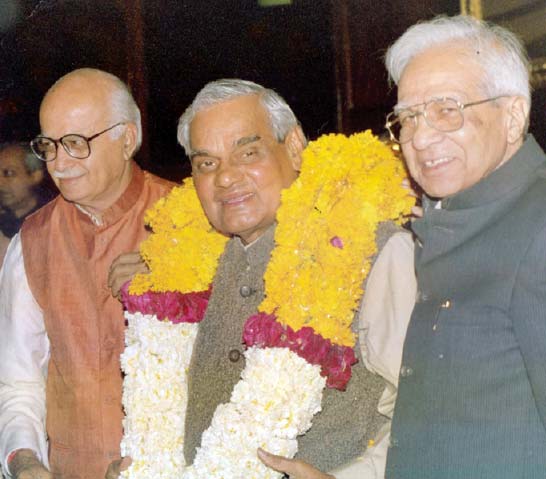
But the political scenario had changed. For the first time the BJP did not have to suffer from its past inferiority complex. There was no Gandhi, no charismatic personality to contend with on the national scene. The protagonists were all ordinary people, all a little in thrall of the Hindutva genie let loose by the Sanghis, all surprised by their permissive ways, their promiscuous couplings, their battle-cries. What gave the BJP battle-cry its sharpness was the change in the RSS itself. There was no Deoras for the BJP politicians to contend with, or to convince of the rightness of their political strategies. The new patriarch of the Sangh happened to be as much a political creature as they themselves. Prof. Rajendra Singh was not a direct player in the game, but the insiders said he not only loved power but understood the mechanics and arithmetic of power. What was more, he would not hold back anything that might help the BJP attain the goal, even if it came to sleeping with the enemy.
There had seldom been such a rapport between Deoras and the BJP president as there was between Prof. Singh and Advani. Made for each other, some said. The others didn’t really matter, neither Vajpayee nor Murli Manohar Joshi. While Vajpayee had to be “tolerated” as a valuable show boy who could project a liberal face when required, Joshi had been “tamed into a obedient boy” who could carry out errands with a grin on his face. The ones to watch were really the back- room of Ambani, pardon the slip, Advani.
But it was still nothing more than posturing. Despite the battle cries and the muscle-flexing and all the talk about killer instinct, the party was still queasy on the inside. It was readying itself for the but had only blunt weapons in its hands, not good enough for ultimate strike. For want of anything positive to show for itself, it had to depend mostly on manna from the heavens: Shah Bano, Ayodhya, Kashi, Mathura, Harshad Mehta, Swadeshi, Civil Code, Sushil Sharma.
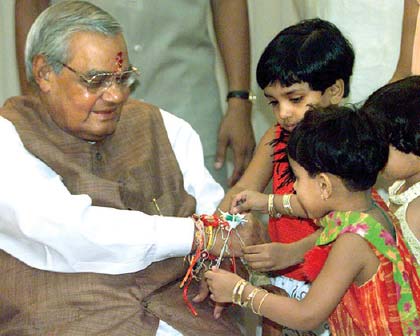
The brief but euphoric 13-day stint as the country’s Prime Minister, changed Vajpayee’s persona. He was in a new avatar. Even the people of India felt here was a man who had it in him to make a good prime minister. It changed things for Vajpayee himself, in terms of greater confidence, an air of optimism instead of his characteristic pessimism, and the new conviction that he and his party could do it. He became more pragmatic, more positive, and more willing to treat politics as a ‘game of power.’ Time and again during the two years when the United Front looked in a precarious position, about to tumble, Vajpayee made hectic efforts to gather support in the badly fragmented Lok Sabha in order to stake his claim once again. He did not succeed, but he was now positive that he could be the Prime Minister again, if only after fresh elections. Most public opinion polls established that he was far ahead of his rivals.
There were many in the Sangh Parivar who insisted that the BJP was projecting Vajpayee only because he had the most charming, most acceptable face, but that Advani was a ‘more suitable’ man. Indeed, there had been a lot of noise about the differences between the top leaders of the party.
At the height of the Ayodhya crisis, when Advani was riding the crest of the Hindu wave, I had started writing a quick biography of the rising leader and was trying hard to think of an appropriate tide. One of my friends in the BJP came up with a suggestion: ‘Why don’t you call the book The Man India Awaits?’ It had seemed like an apt and catchy title. It had then appeared that the demolition of the Babri Masjid would sweep away Narasimha Rao who had hibernated while the disputed shrine was being knocked down brick by brick. Vandalism or not, defiance of Supreme Court orders or not, the Hindu zealots were riding high, and on the highest crest was Advani who had been present during the demolition and had even given vocal support to the vandals. He was being hailed as the man of the hour, and the more Rao’s impotent government went after him the higher he seemed to rise in people’s estimation, or at least of a section of the people of India. When Advani was jailed, he was treated with such kid- gloves by the administration that it almost seemed it had accepted him as the Prime Minister-in-waiting. And all this while, Advani’s senior in the party and admittedly the more charismatic leader, Vajpayee was in a state of deep sulk. He had begun by expressing shock and dismay at the demolition of the Masjid, and even his retraction did not convince the hardliners in the party. That was a low point for Vajpayee, and a high one for Advani.
BUT politics changes fast. The tide turned. The high-flying Advani was suddenly in a trauma after his name figured in the scandalous Jain Diary, as one of the leaders involved. It was a trauma not only for Advani, who suddenly decided to quit the Lok Sabha and not return till he had been cleared of the charge, but even more for the BJP. It did not know which way to look.
Had it not been for the hawala charge, which of course was eventually dropped, Advani and not Vajpayee would have been the Sangh Parivar’s choice to head the short-lived government at the Centre. But then there were those who said that it was precisely because of the foreknowledge that the government could not last that the BJP hardliners ‘allowed’ Vajpayee to be the Prime Minister. He was their fall guy.
Excerpted from Prime Ministers: Nehru to Vajpayee by Janardan Thakur, Eeshwar Prakashan, New Delhi
















